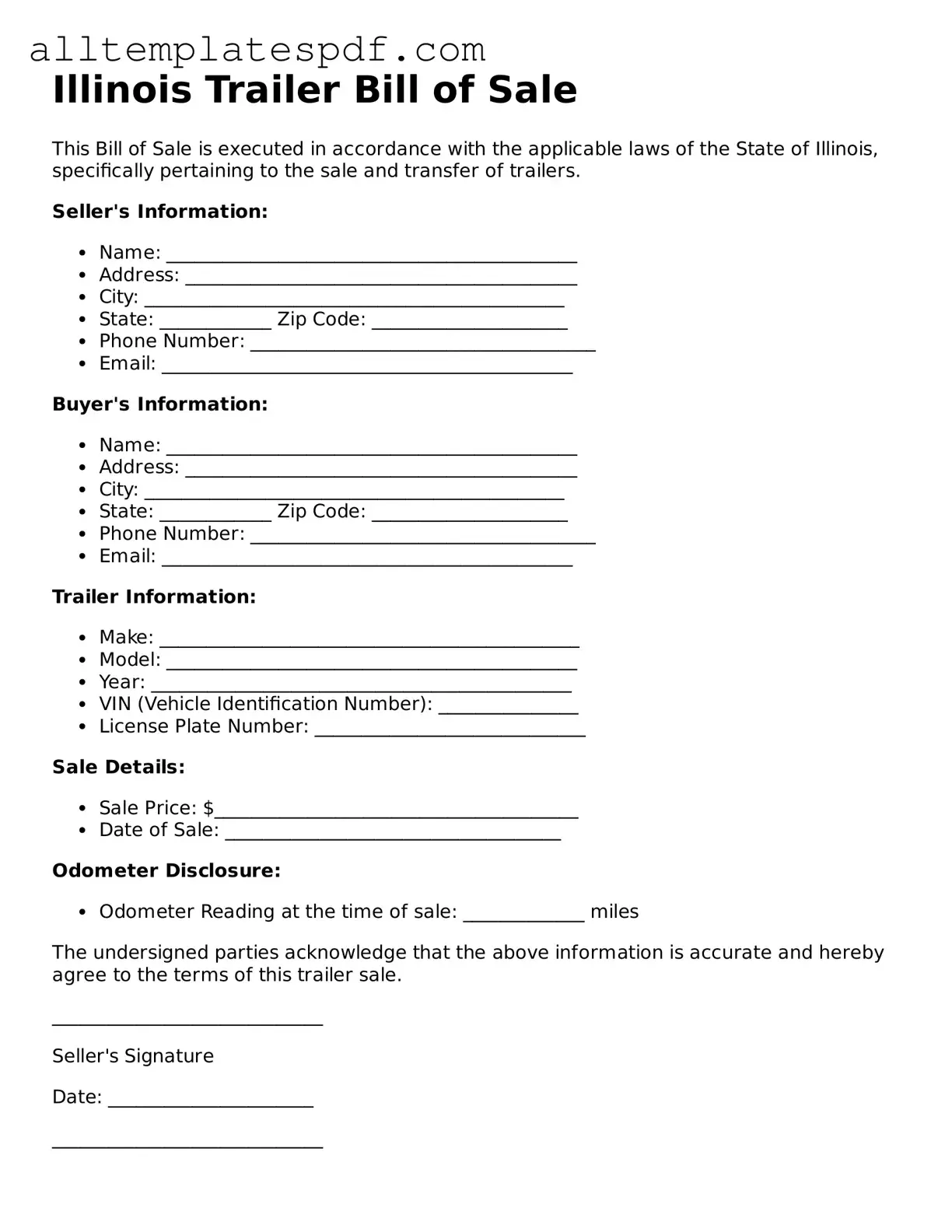When filling out the Illinois Trailer Bill of Sale form, individuals often overlook critical details that can lead to complications down the line. One common mistake is failing to provide complete information about the trailer. The form requires specific details such as the make, model, year, and Vehicle Identification Number (VIN). Missing any of this information can create confusion and may even result in difficulties when registering the trailer.
Another frequent error is neglecting to include the purchase price. This detail is essential not only for the buyer and seller but also for tax purposes. If the purchase price is omitted, it can lead to misunderstandings regarding the transaction's value and may raise questions during future dealings with the Department of Motor Vehicles.
Many people also forget to date the bill of sale. A date is crucial as it establishes when the transaction took place. Without this information, it may be challenging to prove ownership or the timeline of the sale, especially if disputes arise later on.
Additionally, signatures are often a point of contention. Both the buyer and seller must sign the form to validate the transaction. Failing to obtain both signatures can render the document ineffective. In some cases, one party might assume that the other’s signature is unnecessary, leading to complications when trying to transfer ownership.
Another mistake involves not providing accurate contact information. Including complete names, addresses, and phone numbers for both parties ensures that they can be reached if questions or issues arise in the future. Omitting this information can lead to difficulties in communication, especially if the buyer needs to follow up on the trailer's registration.
People sometimes overlook the importance of including any additional terms or conditions of the sale. If there are specific agreements, such as warranties or payment plans, documenting these terms on the bill of sale can help avoid misunderstandings later. Without this clarity, one party may assume different conditions than the other.
In some cases, individuals might fail to make copies of the completed form. Keeping a copy for both the buyer and seller is essential for record-keeping. This step can save time and hassle should any issues arise, as both parties will have a reference point for the transaction.
Another common oversight is not checking for typos or errors in the information provided. Simple mistakes in spelling or numbers can lead to significant complications. For example, an incorrect VIN can make it impossible to register the trailer. It’s always wise to double-check all entries before finalizing the document.
Lastly, some individuals may not realize the importance of consulting local regulations or requirements related to the sale of trailers. Laws can vary, and ensuring compliance with local rules can prevent legal issues in the future. Taking the time to understand these regulations can make the process smoother and more secure for both parties involved.

